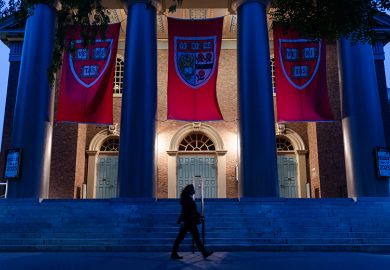Australia should harness the disruption of the Covid-19 pandemic to rethink inequities in the funding of its overall university system, a new report argues.
The report, from the Mitchell Institute thinktank at Victoria University, also advocates a return to the demand-driven system (DDS) by removing the caps on university places.
Author Peter Hurley said policy discussions tended to overlook the longstanding unevenness of Australia’s university sector. He said the research-intensive Group of Eight universities had cashed in from years of snowballing international enrolments, while a dozen or so “mid-ranked” universities had benefited handsomely from the DDS in the past decade.
Both of these cash injections had bypassed another dozen smaller regional and outer metropolitan institutions, eroding their capacity to meet the needs of the socioeconomically disadvantaged students who enrolled with them in disproportionate numbers.
The report says support for regional universities has been a government priority for almost a decade, while targeted policies to help non-metropolitan universities – such as regional loadings – have also come under the microscope.
But such measures “simply result in the maintenance of campuses that are unprofitable or have small enrolment numbers that make the provision of broad tertiary education difficult”, the report says.
“The aim of any policy reform should be to encourage lively and creative learning spaces at smaller and regional universities, rather than propping up campuses that have low enrolments.”
The report says that before the impact of the coronavirus, Australia’s higher education investment had increased 44 per cent in real terms over a decade, driven by surging international revenue and the DDS. Despite this, university surpluses were “trending downwards” while smaller universities had not grown at the same rate as the big ones. “The reasons for this have little to do with quality as many of these universities score highly on quality indicators.”
The institute advocates reviving the DDS or boosting universities’ domestic capacity in some other way, as well as increasing funding for vocational education and training. Mr Hurley said domestic demand would rise as workers looked to upskill and school leavers abandoned gap year plans.
“Removing the caps on university places would [allow] Australians with few job prospects to build their skills in preparation for the economic recovery, [while helping] universities offset [the] unprecedented drop in revenue from international students.”
The report estimates that up to 18 months of border closures will cost Australian universities between A$10 billion (£5.1 billion) and A$19 billion. The “next hit” – this year’s stalled mid-year intake of foreign students – alone will cost universities A$2 billion.
“Each six-monthly intake missed due to the closed international border will deliver an economic blow equivalent to when Australia lost its entire car manufacturing industry,” the institute said.
Australian National University policy expert Andrew Norton, who contributed to the report, said he expected international student numbers to rebound eventually, but it could take years.
He said the growth of Asia’s middle class, which had fuelled the surge in international enrolments, would experience an “interruption rather than a fundamental reversal. But over the next few years it will be very difficult to get the numbers back to where they were. At least temporarily, many families in the source countries will have much less money than they thought they would.”
Continuing travel restrictions, reputational damage and the “pipeline effect” of deferred study is expected to further delay recovery.
Register to continue
Why register?
- Registration is free and only takes a moment
- Once registered, you can read 3 articles a month
- Sign up for our newsletter
Subscribe
Or subscribe for unlimited access to:
- Unlimited access to news, views, insights & reviews
- Digital editions
- Digital access to THE’s university and college rankings analysis
Already registered or a current subscriber?










